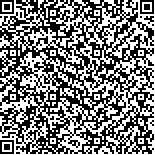| Quote
: |
黄蓓,胡雅君,周月希,王诗弘,张阳阳.国医大师梅国强运用和解枢机法治疗痛经[J].湖南中医药大学学报英文版,2023,43(9):1617-1620.[Click to copy
] |
|
| |
|
|
| This paper
:Browser 2622times Download 1246times |
| 国医大师梅国强运用和解枢机法治疗痛经 |
| 黄蓓,胡雅君,周月希,王诗弘,张阳阳 |
| (湖北中医药大学, 湖北 武汉 430061;湖北中医药大学, 湖北 武汉 430061;武汉市中西医结合医院, 湖北 武汉 430022) |
| 摘要: |
| 国医大师梅国强认为,痛经的发生与“枢机不利”关系密切。足少阳胆经与足厥阴肝经互为表里,属胆络肝,经过小腹部位。肝藏血,主疏泄,胆主决断,藏精汁,肝胆共同维持气血津液正常运行。若少阳枢机不利,经脉郁滞,津液输布失常,痰湿内生,或从寒化,或从热化,循经下扰,导致痛经。常见证型有枢机不利,湿热下阻,经脉郁滞;枢机不利,寒饮凝聚经脉;肝经气滞血瘀,阳郁而厥等。梅国强教授治以和解枢机,或兼清利湿热,或兼温化寒饮,疏肝解郁,行气活血。常用方药包括柴胡温胆汤、柴胡桂枝干姜汤、四逆散、金铃子散等。 |
| 关键词: 原发性痛经 继发性痛经 枢机不利 和解枢机 柴胡温胆汤 柴胡桂枝干姜汤 梅国强 |
| DOI:10.3969/j.issn.1674-070X.2023.09.010 |
| Received:May 11, 2023 |
| 基金项目:国家自然科学基金项目(82205170)。 |
|
| Treating dysmenorrhea with “harmonizing and releasing Shaoyang” by National TCM Practitioner MEI Guoqiang |
| HUANG Bei,HU Yajun,ZHOU Yuexi,WANG Shihong,ZHANG Yangyang |
| (Hubei University of Chinese Medicine, Wuhan, Hubei 430061, China;Hubei University of Chinese Medicine, Wuhan, Hubei 430061, China;Wuhan Hospital of Chinese and Western Medicine, Wuhan, Hubei 430022, China) |
| Abstract: |
| National TCM Practitioner MEI Guoqiang believes that the pathogenesis of dysmenorrhea is closely related to the "Shaoyang impairment". The gallbladder meridian of foot-Shaoyang is exteriorly-interiorly related to the liver meridian of foot-Jueyin, which is ascribed to the gallbladder and connected to the liver, passing through the lower abdomen. The liver stores blood and governs the free flow of qi. The gallbladder stores bile and governs decision-making. The liver and gallbladder jointly maintain the normal function of qi, blood, and bodily fluids. If Shaoyang meridians are impaired, the meridians will be obstructed, and the body fluids distribution will in turn be abnormal. Then the phlegm dampness is engendered, transforming into cold or heat, which will disturb downward along the meridians, and dysmenorrhea is thus caused. The common patterns are as follows: Shaoyang impairment leads to the accumulation of damp heat and the stagnation of meridians; Shaoyang impairment causes the accumulation of cold fluids in meridians; blood stasis due to qi stagnation in liver meridians, or syncope due to yang depression, etc. Professor MEI Guoqiang treats with the principle of "harmonizing and releasing Shaoyang", either simultaneously clearing dampness and heat, or simultaneously warming and transforming cold fluids, which can sooth the liver and regulate qi, and promote qi and blood circulation. The common formulas include Chaihu Wendan Decoction, Chaihu Guizhi Ganjiang Decoction, Sini Powder, Jinlingzi Powder and so on. |
| Key words: primary dysmenorrhea secondary dysmenorrhea Shaoyang impairment harmonizing and releasing Shaoyang Chaihu Wendan Decoction Chaihu Guizhi Ganjiang Decoction MEI Guoqiang |
|

二维码(扫一下试试看!) |
|
|
|
|


